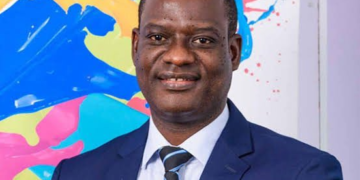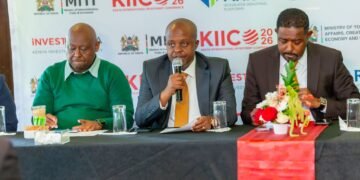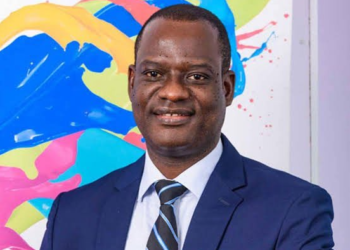Climate change has been identified as one of the most pressing existential threats to Africa’s inclusive growth and sustainable development. Amidst this environmental urgency, the African Development Bank (AfDB), a multilateral development finance institution that supports the economic development and social progress of African countries individually and collectively has strategically positioned itself to become a key force, championing initiatives to combat and adapt to the effects of climate change across the continent focused on climate finance.
AfDB for the past years has unravelled numerous strategies and projects to reshape Africa’s resilience in the face of a developmental path in line with its Green Growth and Third Climate Change Action Plan 2021- 2025.
One of AfDB’s initiatives, YouthAdapt, a project which seeks to support young entrepreneurs to drive solutions to tackle climate change has provided more than $1.5 million to 33 young entrepreneurs across 19 African countries. Recently, President of the African Development Bank, Akinwumi Adesina announced a joint initiative with the Global Centre on Adaptation to boost a $1 billion facility to accelerate climate financing for the African youth. In the Bank’s attempt to foster economic growth, Adesina is convinced that failing to invest in the youth will impede Africa’s economic growth.
Another critical area of focus indicating AfDB’s commitment to climate change is the Africa Adaptation Acceleration Program (AAAP) which aims to mobilize USD 25 billion by 2025 to scale up and accelerate climate change adaptation actions across Africa. By operationalizing this mandate, the bank has generated four priority areas to fulfill this initiative which include food security, resilient infrastructure, youth innovation job creation and innovative finance.
The AfDB not only promotes the adoption of climate change but also understands the magnitude of climate crisis requires collective action. Consequently, the bank forges partnerships with governments, non-governmental organizations, the private sector and has collaborated with regional bodies, such as the Intergovernmental Authority for Development (IGAD), Southern Africa Development Community (SADC), Economic Community of West African States (ECOWAS) to amplify the impact of climate change interventions. In collaboration with Madagascar’s Ministry of Water, Sanitation, and Hygiene, the African Development Bank initiated a project aimed at safeguarding and enhancing water resources while bolstering the country’s resilience to climate change. Supported by a $3.32 million fund from the African Development Fund’s Project, the bank addressed the socio-economic and environmental repercussions of climate change on both communities and ecosystems.
Ahead of the 28th United Nations Conference on Climate Change (COP 28), the African Development Bank Group launched the country-by-country economic reports. These reports were designed to provide African policymakers with valuable insights to inform and shape the continent’s policies for climate resilience and sustainable green growth.
AfDB’s climate change initiatives have contributed to several success stories.
The African Development Bank, backed by the United Nations Secretary General’s Early Warning for All initiative and the Systematic Observations’ Financing Facility, aims to deliver $25 billion in climate finance by 2025.
Moreover, the Clim Dev Africa Special Fund, hosted by the African Development Bank, allocated $74 million to assist twelve countries and five regional climate centres covering 27 nations. Its objective is to strengthen climate and weather services diversity, thereby mitigating loss and damage caused by extreme weather events in these countries.
The Bank has contributed to climate adaptation in Africa through five key approaches.
First, the African Development Bank initiated the Africa Climate Adaptation Program, a substantial global adaptation effort aiming to mobilize $25 billion for climate adaptation in Africa. In collaboration with the Global Center on Adaptation, the bank is working to broaden Africa’s access to climate adaptation financing. The focus includes supporting countries in crafting climate adaptation investment compacts, with seven already launched during the Africa Climate Summit, anticipating more to follow before COP 28.
Again, the Bank has commenced the $20 billion Desert to Power program, aiming to generate 10,000 MW of solar energy across eleven Sahel zone countries in Africa. This endeavour is set to provide electricity to approximately 250 million people.
The Bank introduced the Africa Climate Insurance Facility for Adaptation, a $1 billion initiative designed to provide insurance coverage for African countries, safeguarding them against extreme weather patterns and catastrophic climate shocks.
The Bank, alongside its partners, implemented the Alliance for Green Infrastructure (AGIA) with the goal of raising $500 million for project preparation and development in green infrastructure. Additionally, AGIA aims to mobilize $10 billion in private sector investments for various green infrastructure assets across Africa.
The African Development Fund’s recently established Climate Action Window, supported by $429 million, which is dedicated to enhancing climate resilience in 37 low-income African countries. This initiative aims to offer crop and livestock insurance to 20 million farmers while facilitating access to climate information systems for 20 million individuals. The ultimate objective is to scale up the facility to a total of $13 billion.
Since 2017, the Global Environment Facility in partnership with the African Development Bank has grown tenfold of 36 projects in 33 countries for a total of USD 285 million of GEF financing and USD 2.9 billion of AfDB co-financing. This funding has been used to build resilience into the AfDB’s infrastructure investments, ensure the sustainability of development achievements, and reduce the vulnerability of people and communities to the negative impacts of climate change. Due to this, the AfDB ranked first among GEF MDB agencies for implementing climate change adaptation projects, demonstrating its capacity to mobilize resources for African countries. The African Development Bank with its scheme, Technologies for African Agricultural Transformation (TAAT) was designed to help Ethiopia become self-sufficient in what production.
As the continent faces an uncertain climatic future, the AfDB’s role becomes increasingly indispensable. It is not merely an institution driving change, it is a hope for a sustainable and resilient Africa in the face of a changing climate.
By: Esther Adwoa Gyanwah Karikari/InstinctBusinessMagazine






























































